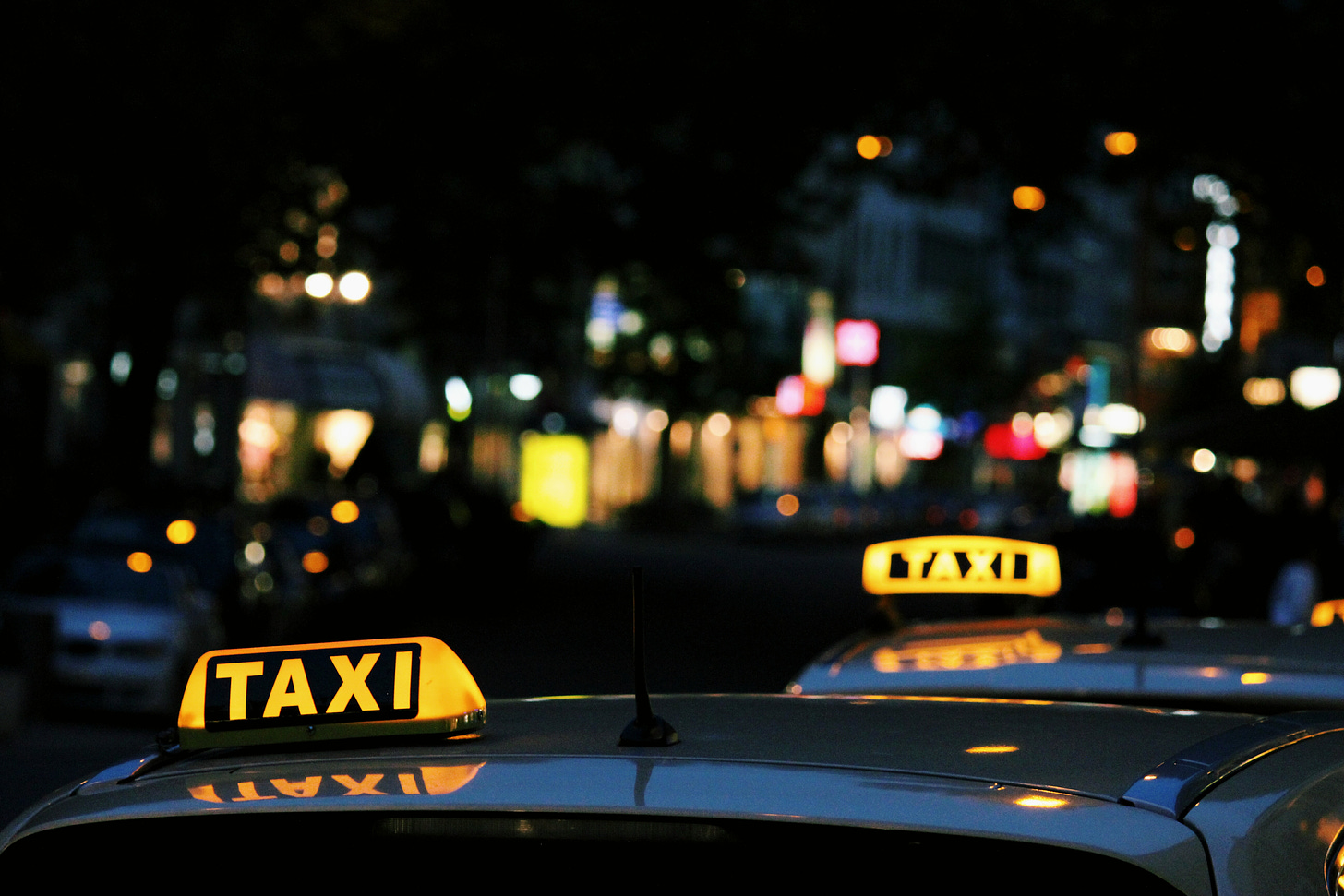Rapido’s cab twist
Also in today’s edition: British boarding schools are India-bound; Vi makes way for a duopoly; Biden’s AI order; Toyota’s battery breakthrough
Good morning! In a major flex, Chinese scientists have managed to restore natural hearing pathways in four children using gene therapy. MIT Technology Review reports that the treatment marks China’s first domestic gene-therapy breakthrough. The treatment involved adding a functional otoferlin gene, enabling the transmission of crucial chemicals for relaying information to the brain. This accomplishment is a noteworthy milestone for China, as it competes with major Western biotech firms such as Eli Lilly and Regeneron.
🎧 Record numbers of illegal Indian immigrants are entering the US. Also in today’s edition: the great Korean football face-off. Listen to The Signal Daily on Spotify, Apple Podcasts, Amazon Music, Google Podcasts, or wherever you get your podcasts.
Dinesh Narayanan, Soumya Gupta, and Adarsh Singh also contributed to today’s edition.
We would like to know more about you. Participate in our annual survey by filling up this form. We’ll use your answers to tweak our products and make them more enjoyable for you. As always: you will remain anonymous.
The Market Signal
Stocks & Economy: The US Federal Reserve takes centre stage this week along with the Bank of England, Bank of Japan, and a slew of other central banks as they decide where to peg interest rates in their respective economies.
Two-decade high interest rates have not helped reduce consumer spending as much as the Fed would have liked, and the US economy expanded 4.9% in the July-September period.
Asian stocks started cautiously but sentiment soon turned negative as Israel expanded its assault on Gaza with war machines and troops on the ground. Japanese stocks fell sharply. Yet global investors appeared to be less concerned than last week. Oil and gold fell.
The GIFT Nifty indicated a strong opening for Indian shares. It’s an action-packed week for the primary market as seven companies prepare to sell shares to the public.
EDUCATION
When One Door Closes…
…another one opens. That aphorism perfectly encapsulates the churn in the world of education as well. Bloomberg reports that elite British boarding schools, faced with challenging operations in China and Hong Kong, are now turning to India.
What?: Schools such as Wellington College and Harrow School have expanded to Pune and Bengaluru through partnerships with Amity Group and Unison Group.
Why?: These schools are eyeing a growing number of Indians seeking quality education outside the country. Approximately 1.3 million Indians studied abroad in 2022, and students are increasingly opting to start early in international education systems. The UK schools might also benefit from the Indian government tightening tax rules for the Liberalised Remittance Scheme, which has made it tougher to fund foreign stays.
But: They face competition from established Indian institutions like the Doon School and Mayo College.
TELECOM
Is This The End?
The Indian telecom sector is inevitably marching towards a duopoly, much like the aviation sector.
In August, we told you how Vodafone-Idea’s troubles have left it hanging by a thread: unable to fight Jio and Airtel, all but forsaken by its owners. Despite getting ₹2,000 crore ($241 million) from them, Vi continues to bleed. It reported a net loss of nearly ₹8,740 crore (~$1.04 billion) for the September 2023 quarter, up 11.4% from the preceding quarter. It lost 1.6 million subscribers.
Higher taxes and interest payments are hurting the firm, and it doesn’t have money to roll out 5G.
It could be worse: If Vi stays in freefall, we all suffer. Airtel has already hiked prices of its entry-level prepaid plans. Maybe there’s hope yet; at least Vi isn’t BSNL. The state-owned telco will launch the decade-old 4G technology next year.
MOBILITY
Switching Lanes
Eight years after introducing bike taxis to India and then trying to disrupt autorickshaw-hailing as well, Rapido is adding another wheel to its business model. The Bengaluru-headquartered startup has piloted a cab service in Hyderabad, with plans to launch it in Delhi-NCR, Bengaluru, and Chandigarh soon, reports TechCrunch.
Rapido is also testing a hyperlocal parcel delivery service and has launched a premium autorickshaw service in Bengaluru that guarantees rides without cancellations.
What’s with all the experimentation? It’s all about increasing margins.
The Signal
Rapido is synonymous with bike taxis—it claims to have over a million bike-taxi “captains” registered on its platform. However, two-wheeler taxis have low margins compared with their three- and four-wheeled counterparts. The sector has also faced regulatory hurdles in multiple states, which, along with the pandemic, led to Rapido expanding to three-wheelers.
The move to add cabs to its platform not only allows Rapido to diversify its offerings and expand its customer base, but also increase margins. That’s crucial for the company after its losses grew 2.6x to ₹439 crore ($52.6 million) in FY22. However, it’ll now be squarely up against the two Goliaths of the ride-hailing industry: Ola and Uber. Various companies have tried to disrupt their duopoly, including BluSmart and inDrive, with electric cars and different business models. How Rapido differentiates itself as a late entrant to the cab-hailing sector will be key in its drive towards sustainability.
TECH POLICY
Order Of The Day
After getting AI companies to sign “voluntary commitments”—a move criticised for being chump change compared to the EU’s landmark AI Act—the Biden administration may finally pass a sweeping AI executive order (EO) today. The 111-page draft touches upon timelines, risk identification, protections, and task forces for AI deployment across US federal agencies overseeing housing, labour, education, defence, healthcare, finance, etc.
The White House will have an AI Council, staffed with reps from government bodies that have been given three to six months to identify and develop AI guidelines. Standouts include easing immigration barriers for highly skilled AI workers and privacy safeguards for personally identifiable information.
Significance: The EO isn’t law. But provisions established by federal institutions could make their way into an AI bill next year.
Aside: The UK, which is hosting the world’s first AI Safety Summit from November 1-2, has passed the controversial Online Safety Bill into law.
TECHNOLOGY
Toyota’s Late But Solid Start
Somewhere in the foothills of Mount Fuji in Japan, automaker Toyota’s engineers are hard at work trying to perfect a technology that will transform the global auto industry, and even geopolitics.
Bridging the gap: Toyota is late to the electric vehicle party. CEO Koji Sato even said that battery-run vehicles are the “missing piece” in its portfolio. But it’s close to a solid-state battery (SSB) breakthrough that will catapult it to the frontline of the mobility race. SSB-powered vehicles are safer, faster to recharge, and can run ~1,200 kilometres on one charge. Toyota may put SSB cars on the roads in three years. However, as we wrote last week, adoption would ultimately hinge on finance.
World-leading rivals such as China’s CATL doubt Toyota’s tech is ready, but the company has rearranged the slow-moving parts of its organisation to speed things up.
FYI
Under the lens: The Directorate General of GST Intelligence is probing Godrej’s acquisition of Raymond Consumer Care for possible tax evasion, The Economic Times reports.
Blast in Kerala: Three people have been killed and over 50 injured in an improvised-bomb explosion at an evangelist prayer convention near Kochi.
Skirting the middle-income trap: Government think-tank NITI Aayog is giving the final touches to Vision 2047, a plan that includes restructuring the government as it aims for India to be a $30 trillion economy.
RIP: Matthew Perry (54), Emmy-nominated actor and star of the global superhit sitcom Friends, was found dead in a hot tub. Perry, who has battled addiction for long, is suspected to have drowned.
Ground rage: Israel has entered a “new stage” of assault on the Gaza Strip with tanks and troops even as it continues with mortar and aerial bombardment.
Getting around to it: Google will invest up to $2 billion in rival AI startup Anthropic, and the G7 countries will agree to a voluntary code of conduct for AI today, Reuters reports.
Seeing what sticks: X, formerly Twitter, has rolled out two additional monthly subscription plans: a $3 basic tier that lets users edit posts and upload longer videos, and a $16 Premium+ tier that’s ad-free and boosts subscriber replies.
THE DAILY DIGIT
₹30 crore
Or $3.6 million. That’s the surprise net profit X Corp (previously Twitter) earned in India in FY23 after a loss-making year. Elon Musk officially took over in October 2022. (The Economic Times)
FWIW
Gotta catch ‘em all: A pop culture phenomenon collaborating with a museum dedicated to one of the finest artists of all time. What could possibly go wrong? A lot, apparently. The collaboration between Pokémon and the Van Gogh Museum, intended to mark the museum's 50th anniversary, encountered multiple issues. The scavenger hunt featuring imitation Van Gogh pieces with Pokémon characters drew large crowds and raised safety concerns, leading to the early cancellation of the promo card giveaway. Later, the special edition Pikachu card was made exclusively available on Nintendo's official Pokémon Center website for the UK, Canada, and the US. However, resellers quickly made these cards available on online markets at inflated prices, showing the fans’ desire to catch ‘em all.
Odd lots: That’s what best describes the new advert for the iPhone 15 Pro. The background is a mix of two songs: Get Him Back! by Olivia Rodrigo, and Karangailyg Kara Hovaa (Dyngyldai) by Yat-Kha. If the second one made you do a double-take, you’re not alone. It’s a song by Albert Kuvezin, the lead singer of Yat-Kha, a throat-singing fusion band from Siberia. Apple wanted to use his music because of the otherworldly nature of his vocals, which emphasise the otherworldly qualities of their new Titanium iPhone (🙄). Whatever the reason, Kuvezin is basking in the glory and the appreciation that has come with the association.
It’s a fairy-tail: For residents of Wrexham, that’s what it feels like. Ever since their local football club was acquired by Hollywood stars Ryan Reynolds and Rob McElhenney, the town has been witnessing a surge in tourist footfalls. The Welsh town is bucking national tourism trends, with revenue from tourism touted to be north of £15 million ($18 million) for this year. Not only that, the prestigious Tour of Britain cycle race ended there. Wrexham will also host the National Eisteddfod, the annual Welsh cultural festival, in 2025. All things considered, it looks like the good times are rollin’.










